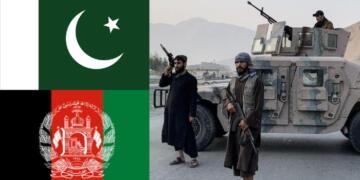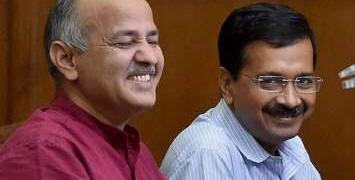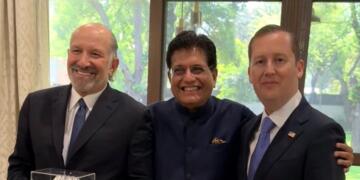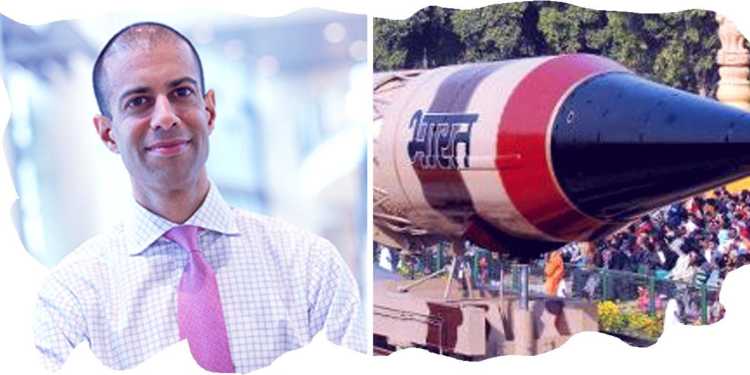What is driving Pakistani press nowadays? Of course, as usual it is India. India is to Pakistan, what Light is to Darkness. The current topic is only about whether India would nuke Pakistan first – or not. The origin of the discussion started with the remarks by Vipin Narang. While discussing the ‘Causes and Consequences of No First Use” Vipin Narang observed there is increased evidence India will not allow Pakistan to strike first.
His guestimate is based on two observations. One was the comment made by Manohar Parrikar when he was the defence Minister of India that why India should bind itself with the NFU policy. Though he clarified it to be his personal opinion and does not represent the official stance of Indian government, it was a comment by a senior minister of Indian government.
Vipin Narang coupled this comment of Parrikar with the observation made by Shiv Sankar Menon, former Indian Foreign Secretary made in his memoir that there is a grey area as to when India should use its nukes first.
Like all other scholars, analysts, journalists and common people, Vipin Narang was entitled to have an opinion based on his analysis of the situation after considering available facts. He elaborated when he in fact extended the cold start doctrine to disarm Pakistan completely of its nuclear weapons. By doing so India would prevent itself from being in a situation of retaliation to nuclear attack by Pakistan.
Commenting on Narang’s remarks New York Times felt there may not be any change in the official stance of India on NFU policy, but only changes the way of the policy is interpreted.
True to its DNA, the paper also speculated India may evolve its strategies, as Trump is apparently soft on nuclear proliferation. Well, seems the footpath dwelling astrologers in Chandini Chowk use past data and information more effectively than the revered newspaper; as India’s nuclear evolution never had any incident of clandestine technology transfer. On the other hand the linen of Pakistan’s nuclear establishment was full of dirty radiation emanated from the deals of Abdul Qadeer Khan, who also happens to be the illegitimate father of Islamic Bomb.
Though the remarks of Vipin Narang were reported in the Indian and Western media, the reverberations it created continue to tremble in both media and defence establishments of Pakistan. The quivers reached a crescendo, even after Pakistan’s Western scholar Moeed Yusuf dismissed the reactions and called it a teacup storm. In fact, his analysis is based on more facts, while Vipin Narang’s observations were based on changing psychology of Indian government. Moeed’s argument was based on how Pakistan has reacted to India’s cold start doctrine. He in fact called it over reaction as Pakistan had gone to develop tactical nuclear weapons that have ever since been deployed through Nasr missiles, a short range ones. In the same vein, Moeed Yusuf also observed that the Nasr had defied the experience of cold war and increased the risks of handling nukes in a real battlefield. Thus, he opined Nasr only offered a reason to the world to worry about the potential dangers of Pakistan’s nuclear programme.
One incident both Vipin Narang and Moeed ignored whether by chance or deliberately in their analysis was the now famous ‘surgical strikes’ carried out by India. More than a casual remark by Manohar Parrikar and dug from the memoirs of Shivsankar Menon, surgical strikes offer a proof that Indian establishment is not averse to think and carry out plans in an unconventional way. Where Moeed’s analysis faltered was when he opined cold start is a strategy that is too difficult to implement in real. India has already tasted success in executing the doctrine but in a limited version. By now, India might have already recalibrated its future execution plans. In fact, surgical strikes exposed Pakistan both in intelligence terms and pure military defence terms.
Maybe this is the reason why even the casual mention of India rethinking on the NFU policy is giving jitters to the Pakistani establishment. Of course, as noted by experts of all sides No First Use policy is something that could not be tested till the situation is experienced. So, the claims by Pakistan that India’s NFU is only hypocrite in essence sounds as true as its Prime Minister’s statement on ‘relations with neighbours is hall mark of Pakistan’.
At the end all analyses by experts would depend on past actions, where Pakistan stands naked in the international arena, exposed from both inbound and outbound clandestine nuclear technology transfers. The fact Khan had become a persona non-grata in his own country says it all. What takes the cake in the entire episode is the shattered belief of Pakistani citizens on their government, army and scientific establishments. Perhaps they started believing more in mullahs than their own government. After all, in a country that hanged its own former Prime Minister, anything could happen.




























